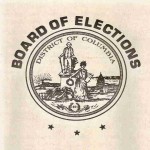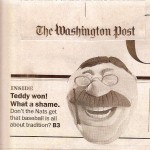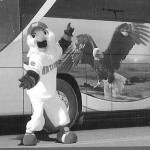Amazon.com, Inc. (NASDAQ: AMZN) launched its first imprint AmazonEncore in 2010. Since that rollout only two years ago, the number of Amazon imprints, representing various genres, has swollen to six. The stated purpose for the company’s entry into the publishing scrum was to provide a hand-picked number of “emerging” writers with a better platform to showcase their previously self-published titles. Presumably it was also the purpose of the venture to bring their own authors’ talents to the attention of their own customers. After all, Amazon’s public-relations persona always insists that it is the consumers who come first in its corporate vision.
It is unclear what concrete promotional activities AmazonEncore actually undertakes for its books, but Amazon appears to want content providers and consumers alike to take as an article of faith that the company has the marketing muscle to reach their prized pool of dedicated readers. The company claims that their choices for inclusion in the imprint were driven through analyses of “customer reviews” and “sales data,” but nothing else is available laying out the actual algorithm being used. It is certain however that some of the lucky authors previously paid for editorial, formatting, or print-on-demand services purchased from and provided by other Amazon subsidiaries. Also muddying the waters of the mission of the imprint somewhat was the fact that later in 2010, AmazonEncore announced plans to publish four “original manuscript submissions.” Then, last year, AmazonEncore held a contest and invited submissions of manuscripts (of 150,000 words or less (other restrictions apply)).
The AmazonEncore Web-page is set up primarily for one to land there and buy its books, and secondarily to bring attention to its newer imprints. Relatively tertiary attention is paid to what the AmazonEncore imprint is all about in the first place. Scroll down the page and one might wish to “share your thoughts and questions with us at” Encore-PR@amazon.com. Below that is another hyperlink: “For proposal submissions or inquiries, please contact” encore-submissions@amazon.com. Now, for nonfiction authors who present “proposals” and writers of any stripe who write “queries” in an effort to intrigue literary agents or publishers, Amazon’s language suggests that it has an interest in arrogating for itself the role of representing authors and cutting out the role of the traditional publishing houses. And maybe all one has to do is submit and something will happen?
I put a couple of questions to the above-mentioned Encore-PR link. “Are the editors at AmazonEncore considering submissions from heretofore unpublished authors? If so, are there any guidelines?” I explained that I was shopping around a debut novel of approximately 280,000 words which I described as work of literary fiction. In my e-mail, my concluding request was to receive “[a]ny guidance you can provide….”
I sent that e-mail on Monday, July 30 at 10:58 a.m. (Amazon Time). I have yet to get any reply. By any sensible standard, the questions and the closing call for some clarification were not difficult or tricky.
Setting aside the class-action lawsuit and Department of Justice (DOJ) investigation into collusion among Apple and several of the larger traditional publishers in a price-fixing scheme (an alleged “horizontal” conspiracy), an argument can also made that AmazonEncore and its spin-offs in seeking to be the agent, publisher, manufacturer, distributor and retailer are creating a kind of “vertical” conspiracy, and wants to remain under the radar of DOJ’s Antitrust Division.
 Every month the District of Columbia Board of Elections and Ethics publishes a breakdown of the number of registered voters within our borders and their party affiliations, if any. As of September 30, 2012 those figures are as follows for the District’s 472,390 voters:
Every month the District of Columbia Board of Elections and Ethics publishes a breakdown of the number of registered voters within our borders and their party affiliations, if any. As of September 30, 2012 those figures are as follows for the District’s 472,390 voters:
